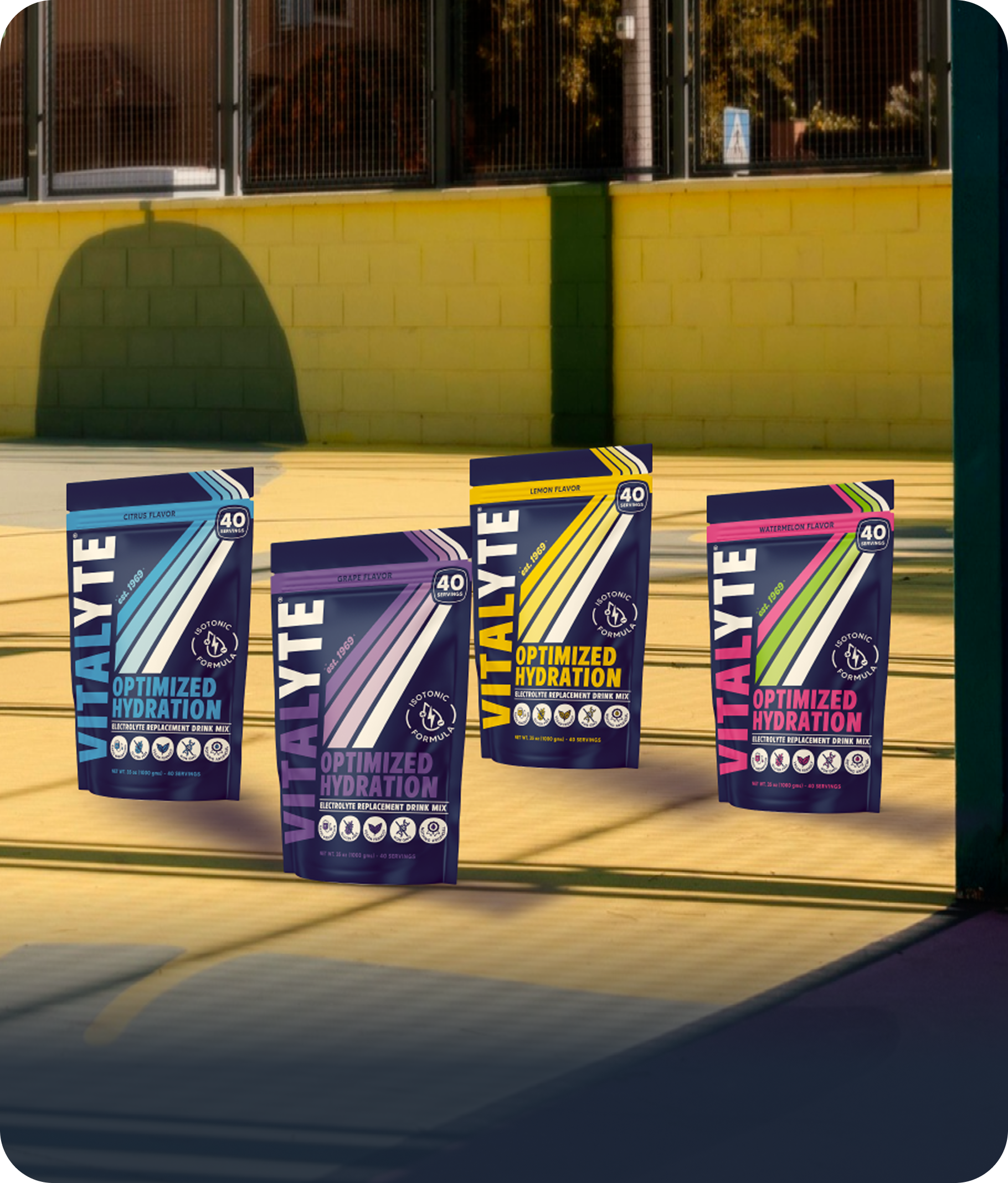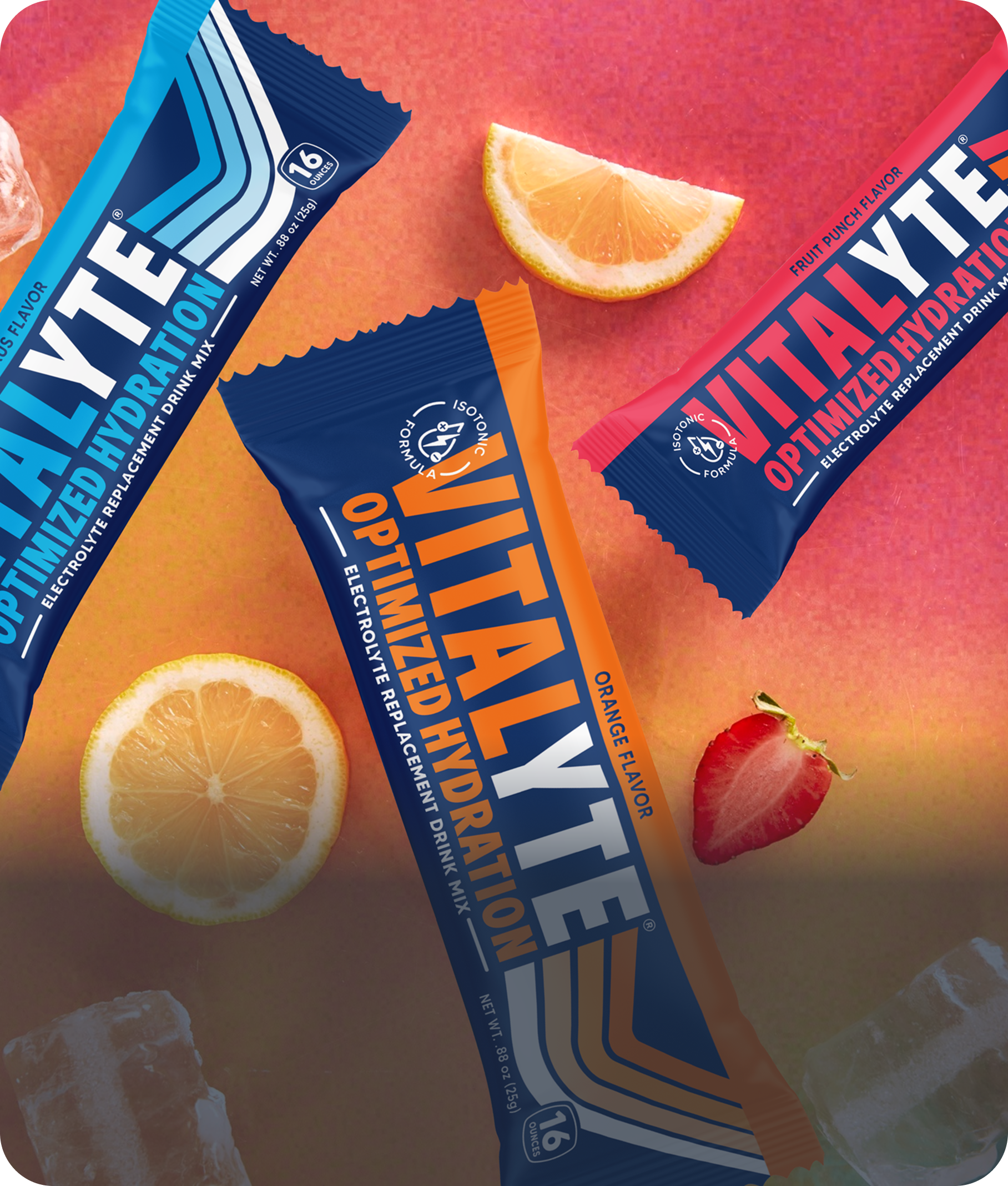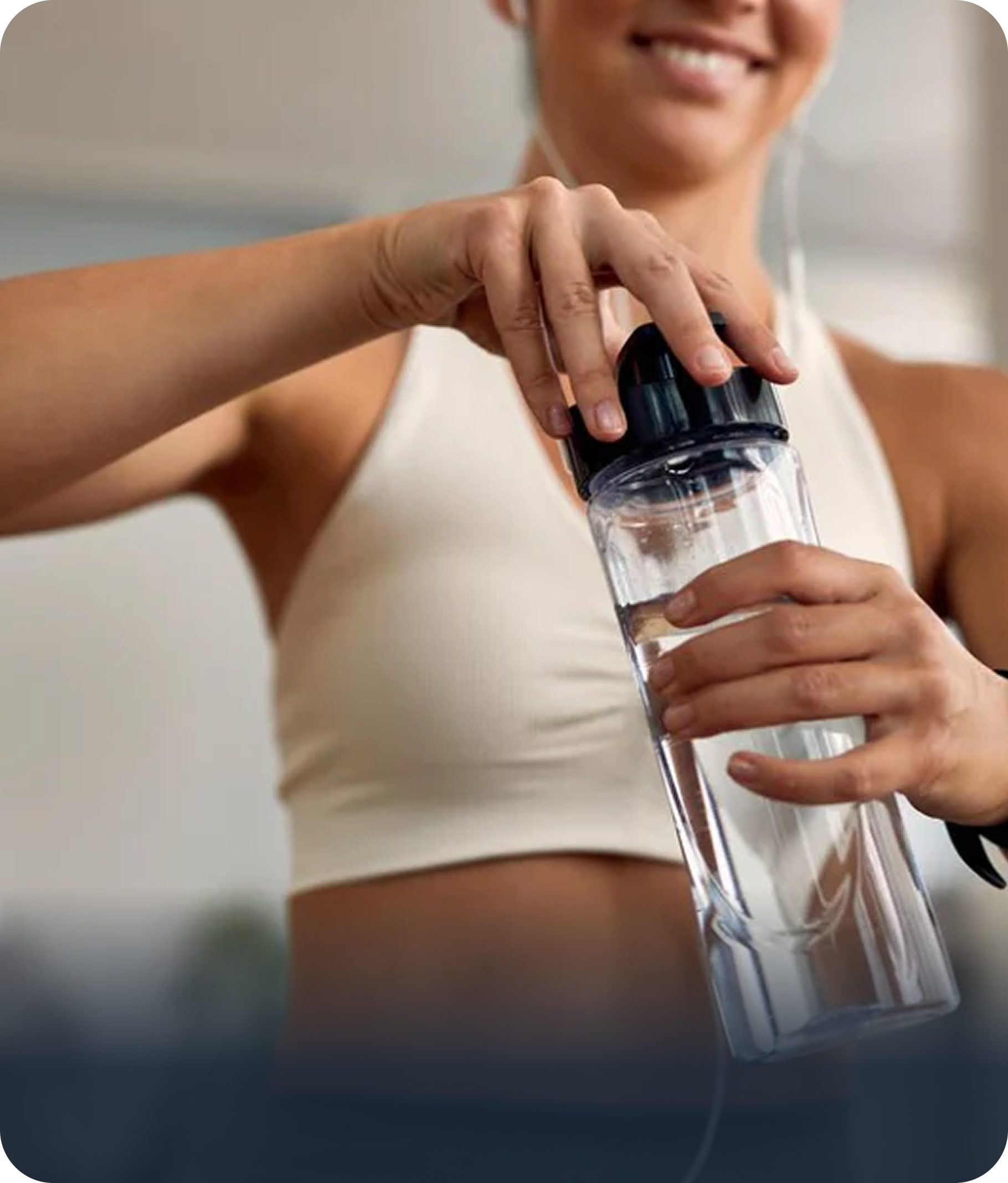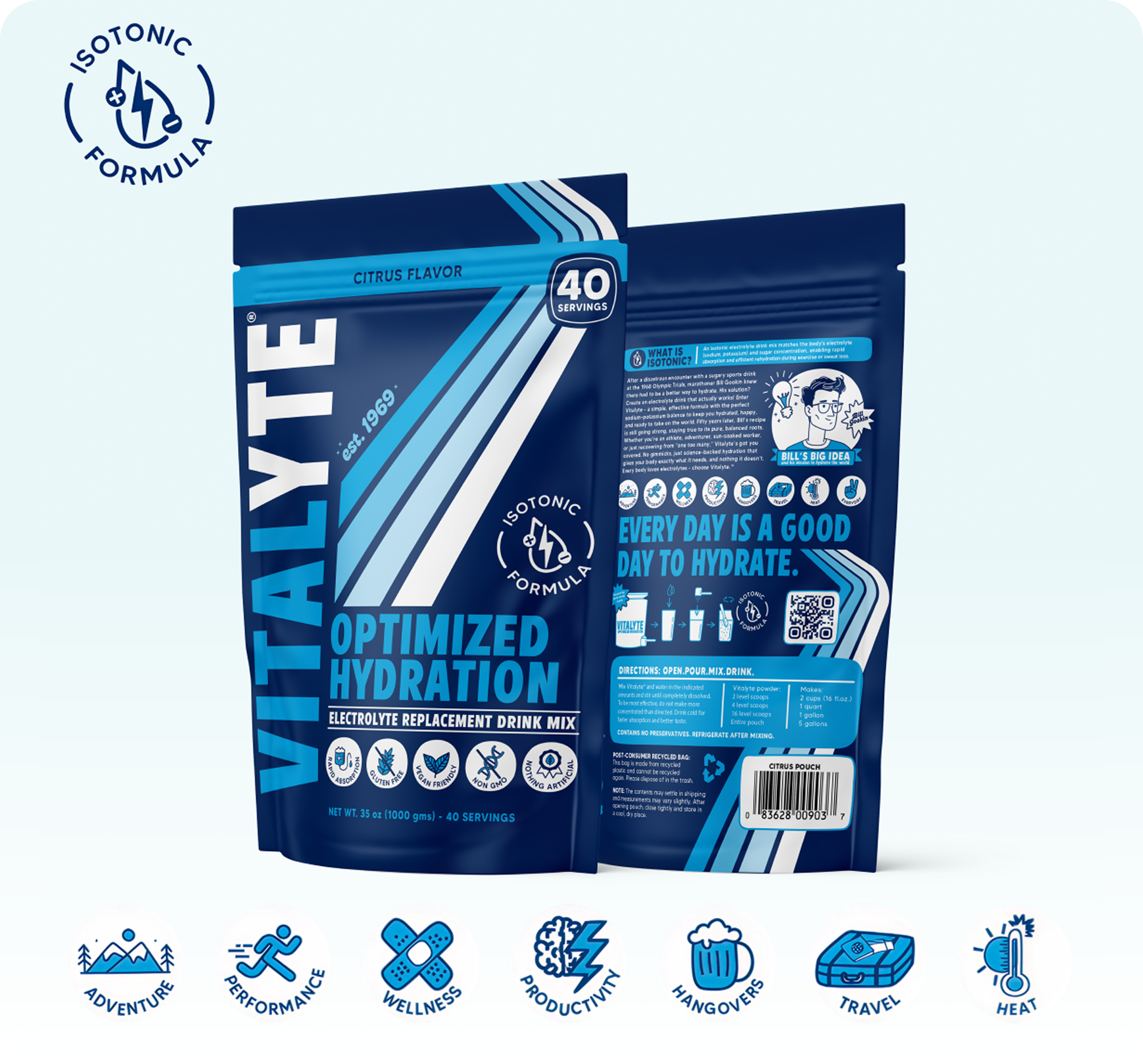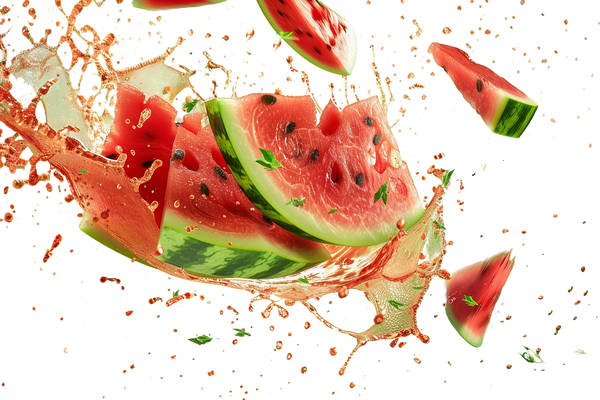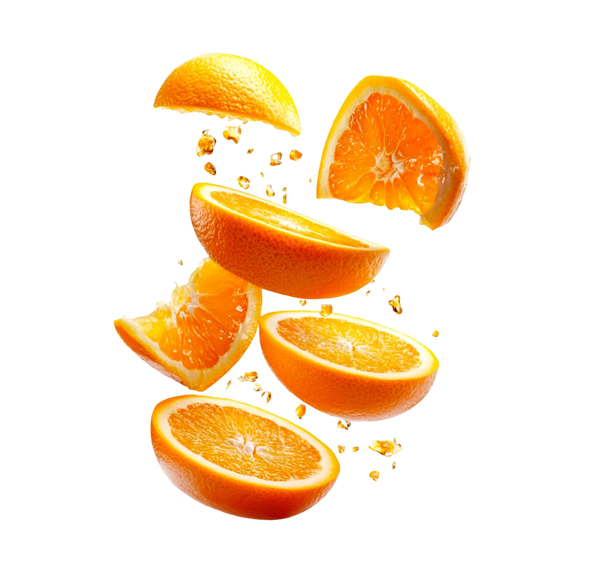Exploring the Role of Sports Drinks in Hydration
Share

Introduction
Whether you're a professional athlete or a fitness enthusiast, maintaining optimal hydration during exercise is crucial for your performance and overall health. It's here that sports drinks, often marketed as hydration-boosting beverages, come into play. Designed to replenish fluids and electrolytes lost during strenuous physical activity, sports drinks are seen by many as an essential part of their workout regimen.
This article will explore:
- The role of sports drinks in aiding hydration
- The key components of sports drinks
- Potential drawbacks associated with consuming sports drinks
- The debate between water and sports drinks for hydration
- The relationship between dehydration and declining performance
- How to optimize hydration strategies for different types of exercises
We'll also discuss other options available in the market for beverages that claim to enhance hydration and performance, so you can make informed decisions about what to drink during your workouts.
💡 Fun Fact: Did you know that our bodies are made up of about 60% water? Staying hydrated helps maintain this balance and supports various bodily functions!
For a deeper understanding of how electrolytes contribute to a successful workout, it's worth exploring the importance of electrolytes for a successful workout. If you're interested in fast and easy hydration solutions, these electrolyte drink mixes might be worth considering from Vitalyte, a brand known for their high-quality products.
To further emphasize the significance of proper hydration beyond just sports drinks, let's touch on some other scenarios where staying hydrated is essential.
Cold Weather Training
Don't let cold weather deter you from outdoor activities and sports. There are plenty of options like skiing, sledding, and skating that can be enjoyed during the winter months. To ensure you stay hydrated even in chilly temperatures, it's crucial to have a hydration plan in place. Vitalyte offers valuable insights on how to train effectively in cold weather conditions.
Surviving the Holiday Party Season
The holiday season brings along with it a flurry of parties and festivities. While these events are fun, they can also be overwhelming and nerve-wracking for some people. It's important to stay hydrated during this time to avoid fatigue and headaches caused by dehydration. Vitalyte provides a survival plan to help you navigate through the holiday party season while staying properly hydrated.
The Water-Hydration Connection
While sports drinks have their benefits, it's important not to overlook the significance of water in our daily lives. Maintaining proper hydration levels by drinking enough water is essential for our overall well-being. Vitalyte emphasizes the importance of daily water intake with their electrolyte replacements that make hydration easier and faster.
Brain Foods and Electrolyte Hydration
Healthy foods not only nourish our bodies but also benefit our brain function. From blueberries to avocados and chocolate, there are several [brain foods](https://vitalyte.com
Understanding Sports Drinks
Sports drinks have carved out a significant niche within the beverage market, often touted as the solution for hydration during strenuous exercise. These drinks are strategically marketed, with advertisements showcasing athletes replenishing their energy and stamina through these vibrant-colored beverages. However, it's crucial to understand what these drinks bring to the table concerning hydration.
At their core, sports drinks contain four key components:
- Sugar: Provides quick energy.
- Glucose: Fuels your muscles during exercise.
- Fluids: Replenish the water lost through sweat.
- Electrolytes: Restore sodium, potassium, magnesium, and calcium lost in sweat and essential for various bodily functions.
These ingredients work together to aid in the body's hydration process and provide an energy boost during vigorous exercise. For adult athletes engaging in strenuous activities lasting more than an hour, sports drinks can offer benefits such as improved endurance and prevention of dehydration.
However, like all things, sports drinks should be consumed in moderation due to potential drawbacks. Their high sugar content can lead to excessive caloric intake if not paired with adequate physical activity and may have a negative impact on dental health.
To make informed consumption choices when it comes to sports drinks, consider these factors:
- 5 Ways to Get Off Your Hide and Find Your Running Stride: Incorporating these tips into your routine can enhance your workout experience.
- Watermelon Electrolyte Packets Stand Up Pouch: A limited-edition flavor perfect for hot days & post workouts to replace electrolytes and hydrate you faster.
- Natural Fruit Punch Electrolyte Drink On The Go Stick Pack: Our fruit punch stick is a delightfully delicious refreshment drink that beats the heat & offers fast absorption hydration. Quench thirst on the go with our tasty treat!
Thus, while sports drinks offer a convenient solution for maintaining energy levels during intense workouts, it's essential to explore different options and understand their composition in order to make informed choices.
Water vs Sports Drinks: The Hydration Debate
The question of whether to hydrate with water or sports drinks is a common one in fitness circles. Both serve the purpose of replenishing lost fluids, but they differ greatly in their composition and effects on the body.
Water
Water is the main drink for staying hydrated and doesn't have any calories. It's important for:
- Maintaining body temperature
- Lubricating joints
- Aiding in digestion
Drinking water during exercise helps replace the fluid lost through sweat and allows your body to work properly. Since it has no calories, it's a good choice if you want to control how much you eat overall.
Sports Drinks
Sports drinks have some benefits over water for certain types of exercise. They contain:
- Important minerals called electrolytes, like sodium and potassium, which your body loses when you sweat
- Carbohydrates in the form of sugars that give you a quick energy boost
These electrolytes are needed to keep the right balance of fluids in your body and help your muscles work well.
When to Choose Water or Sports DrinksThe decision between water and sports drinks depends mostly on how long and intense your workout is:
- Short-duration workouts (less than an hour) with light to moderate sweating: Water is usually enough.
- Long-duration workouts (more than an hour) with heavy sweating: Sports drinks can be more helpful because they replace both fluids and electrolytes lost through sweat.
While water is always the best choice for staying hydrated without any extra calories, sports drinks can be useful during extended periods of physical activity.
Here are some tips for making the right choice:
- Look for options that provide natural electrolyte replenishment without too much added sugar. For instance, Vitalyte's natural lemon electrolytes drink could be a good option.
- Do some research or talk to a healthcare professional to figure out what's best for you and your hydration needs.
In the end, the key to optimal hydration is finding a balance between water and sports drinks that works for your specific workout routine and health goals.
It's also worth noting that certain medical treatments like radiation therapy and chemotherapy can cause dehydration, so it's important to prioritize proper hydration during such situations as well.
The Link Between Dehydration and Performance Decline
When discussing the effects of dehydration on athletic performance, it's crucial to recognize that even a slight imbalance in the body's fluid levels can trigger negative physiological responses.
Dehydration can lead to a significant decline in both physical and cognitive performance. It's not just about feeling thirsty; dehydration can cause symptoms such as fatigue, dizziness, and confusion. It severely affects your body's ability to regulate temperature, leading to overheating during strenuous exercise.
In the context of athletic performance, the consequences are far-reaching. For instance, dehydration can result in diminished muscle strength and endurance, ultimately impacting an athlete's ability to maintain high intensity for extended periods. This occurs because dehydration reduces blood volume, which leads to less oxygen being delivered to working muscles.
For cognitively demanding sports that require quick decision-making under pressure, like football or tennis, studies have highlighted that dehydration impairs concentration and coordination[^1^]. This could mean the difference between making a game-winning move or not.
Additionally, chronic dehydration can lead to more profound health issues like kidney stones and urinary tract infections[^2^], both of which can sideline an athlete for extended periods.
These outcomes underscore the importance of proper hydration strategies during workouts - whether you choose water or electrolyte drinks - with the goal of maintaining optimal fluid balance to support peak athletic performance. However, it's important to note that hydration isn't just limited to exercise sessions. Holiday travel often involves long distances and inherent stress, making it crucial to prioritize hydration even during these times. So whether it's during a workout or while traveling, understanding the significance of proper hydration is essential to ensure optimal performance and overall well-being.
Optimizing Hydration Strategies for Different Types of Exercise
Effective hydration strategies differ based on the intensity and duration of your physical activities. For instance, sports like cycling demand continuous fluid intake due to their long durations. A study published in the Journal of Applied Physiology suggests that cyclists should aim to consume 0.5 to 2 liters of fluid per hour of exercise, depending on individual sweat rates[^1^]. This helps maintain optimal performance levels and prevents dehydration.
On the other hand, fluid consumption for sports with intermittent high-intensity bursts like tennis or football may vary. These sports often include breaks allowing for rehydration. Nevertheless, athletes should ensure adequate fluid intake before, during, and after their games to compensate for the fluids lost through sweat.
Environmental factors, particularly temperature, also play a critical role in determining your hydration needs during workouts. In high-temperature conditions, your body sweats more to cool down. This means you'll need to increase your fluid consumption to stay properly hydrated.
Conversely, in low-temperature environments, you might not feel as thirsty even though your body is still losing fluids through respiration and reduced perspiration[^2^]. It's crucial here to monitor your fluid intake carefully.
When it comes to choosing the right drink for rehydration, Vitalyte provides an electrolyte drink mix designed to hydrate you faster. This can be particularly beneficial for athletes who require quick replenishment during short breaks in sports like tennis or football. Vitalyte's lemon electrolyte drink mix is a popular choice due to its effectiveness and portability.
Moreover, Vitalyte offers specialized hydration solutions tailored towards specific needs such as first responders. These individuals often face time-sensitive situations where optimal hydration can be a matter of life and death. Vitalyte's electrolyte drink acts fast, contains 26% less sugar, and is the ideal hydration pack for such critical scenarios[^3^].
Remember, it's essential to listen to your body and adjust your hydration strategy according to the specific demands of your exercise routine and environment. Taking advantage of products like Vitalyte's electrolyte drink mix can significantly enhance your overall performance and recovery process.
Making Informed Choices: Navigating the Sports Drink Market
In the quest for optimal hydration, it's important to explore diverse options in the beverage market. Functional beverages play a significant role in this regard, offering hydration benefits and performance enhancement.
1. Dairy-Based Drinks
Dairy-based drinks often come enriched with probiotics and minerals. Probiotics aid digestion while minerals like calcium and magnesium are vital for muscle function during workouts. They provide an interesting alternative to traditional sports drinks, especially for those who engage in high-intensity workouts.
2. Vegetable and Fruit-Infused Drinks
Vegetable and fruit-infused drinks offer their own unique merits. Packed with natural sugars, these drinks can provide quick energy during exercise. Plus, they're chock-full of essential vitamins and antioxidants that support overall health.
3. Sports/Energy Drinks
On the other hand, sports/energy drinks are specifically designed to meet athletes' hydration needs. They typically contain electrolytes like sodium and potassium that help maintain fluid balance in the body during strenuous exercise. You can find a wide range of flavors and formulations on the market, allowing you to choose one that best suits your preferences and workout routine.
Remember that not all sports beverages are created equal. Some may have excessive sugar content or artificial additives which could negatively impact your health if consumed in large quantities regularly. It is crucial to read the labels carefully and get familiar with the nutritional content before making a choice.
Whether it's reconnecting with your inner child or managing stress and anxiety, maintaining proper hydration is key to an energetic lifestyle. Yet, it's equally important not to overlook potential health risks when choosing your go-to hydration drink.
Understand your body's unique needs, consider the intensity and duration of your workouts, and make a well-informed decision. This approach ensures that you're not just hydrating effectively but also taking steps towards a healthier lifestyle.
And if you've ever wondered why you get sick, it's worth exploring the factors that contribute to respiratory illnesses, especially during periods of intense physical activity or stress.
Conclusion
Sports drinks play a crucial role in keeping you hydrated during intense workouts. They provide a convenient way to replace electrolytes and glucose, which can improve your stamina and performance. However, it's important to find the right balance.
While sports drinks are beneficial for demanding exercises lasting more than an hour, water remains the best choice for staying hydrated. It has no calories, is easily accessible, and works well for most workout routines.
Here are some key takeaways:
Be Mindful of Your Choices
- Not all sports drinks are the same. Take the time to understand the nutritional information and ingredients of the brand you prefer. Some options may have excessive sugar content, which can lead to health problems like obesity and tooth decay if consumed excessively.
Customize Your Approach
- To get the most out of your hydration plan, tailor it to fit the specific characteristics of your workout:
- Exercise Type: Different activities may require different hydration strategies. For example, endurance athletes might benefit from sports drinks with higher carbohydrate levels, while strength trainers may prioritize protein intake.
- Duration and Intensity: Longer or more intense workouts typically call for increased fluid and electrolyte replacement.
- Environmental Factors: Hot and humid conditions can cause more significant fluid loss through sweat, necessitating additional hydration measures.
Seek Professional Guidance
- Everyone's hydration needs are unique. Factors such as age, gender, weight, fitness level, and overall health can influence how much fluid you should consume during exercise. For personalized advice tailored to your circumstances, consult healthcare experts or registered dietitians who specialize in sports nutrition.
Consider Specific Requirements
- Certain athletic communities have their own preferences when it comes to sports drink brands. Cyclists, for example, may opt for specific options that are designed to meet their requirements. These options, like Vitalyte, are formulated to replace valuable electrolytes lost through sweat and restore glucose levels faster than any other product. They are also absorbed quickly and are easy on the stomach.
Ultimately, achieving optimal hydration goes beyond simply drinking fluids. It involves gaining insights into your body's distinct demands and making informed decisions that support both your well-being and performance. Understanding the causes of dehydration is also crucial in maintaining proper hydration levels during workouts.
